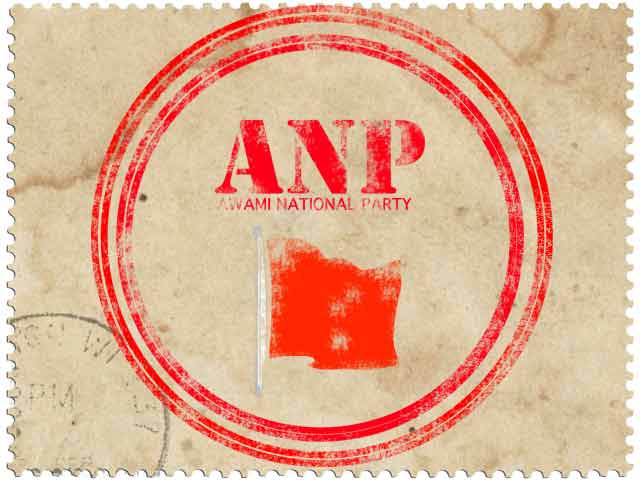Analysis: Recounting ANP’s eventful tenure
The party came to power at a particularly difficult time.

The party proved itself to be a lone voice against terrorism, amid a confusing web of conspiracy theories obfuscating the truth. PHOTO: FILE
The situation could not have been much worse when the Awami National Party (ANP) government came to power in 2008. Suicide bombings and rising extremism were being compounded by announcements, made by none other than Jamiat Uleme-e-Islam chief Maulana Fazlur Rehman, that the Taliban were 60 kilometres away from Islamabad.
However, the ANP, which championed secular politics in a conservative region, survived its five-year tenure despite difficult times and mounting attacks on its leadership. Notwithstanding allegations of corruption and mismanagement, the ANP government and its coalition partner Pakistan Peoples Party (PPP) performed well compared to their counterparts in Sindh and Balochistan.
Soon after coming into power, the ANP was faced with a Taliban force that was gradually eroding the writ of the state across the province, particularly in Swat. Additionally, the security situation in Malakand was going from bad to worse, with Upper and Lower Dir paralysed at the hands of militants who were advancing on nearby Buner.

Throughout its election campaign, ANP leaders promised to bring peace to the war-torn region. Concentrating on Swat, they acted wisely by opting to engage the Taliban in dialogue. The ANP came under heavy criticism for accepting a condition under the March 2009 ceasefire which allowed militant leader Sufi Mohammad to impose Sharia law across Malakand. However, in retrospect this provided the government with an opportunity to rid the Swat valley of extremists once and for all.
A video showing a girl being flogged by militants outraged the nation and resulted in the launch of Operation Rah-e-Raast in May 2009, which rooted the Taliban. Thus ANP’s biggest political gamble paid off when it allowed the nation to build a consensus against acts of terrorism. The party proved itself to be a lone voice against terrorism, amid a confusing web of conspiracy theories obfuscating the true issue facing the country.

“In 2008, militants had established networks and were achieving a sort of social control,” said Khadim Hussain, head of the Bacha Khan Trust Educational Foundation. “It was the ANP that introduced an alternative discourse.”
The aftermath of the military operation in Swat left the ANP to face the crisis of internally displaced persons (IDPs), with over a million IDPs pouring into transit camps. Yet their repatriation was quick as almost all displaced people were returned home within a short period of time.
But the ANP paid dearly for its stance against terrorism when the Taliban targeted and killed around 700 party workers. Although ANP chief Asfandyar Wali Khan narrowly survived a suicide attack, senior minister Bahir Ahmad Bilour was not as lucky and died in a targeted attack on December 22, 2012.
The party also dealt with other issues such as the floods in 2010, which devastated huge swaths of territory across the province, causing over 1,000 deaths. Moreover, the 18th Amendment, which resulted in the province being renamed, was a long -standing ANP demand. “The aftermath of the 18th Amendment immensely benefited K-P,” argued Hussain, adding the party lobbied the National Assembly despite being a minority.
A lesser-known achievement is the ANP’s investment in education, with over seven universities opened under its tenure. According to Hussain, establishing and developing an educational network in the aftermath of floods and militancy was the party’s second greatest contribution after breaking the extremists’ iron grip in the region. Hussain also claimed the ANP’s devotion to developing infrastructure and communication is manifested in developments from roads to radio.
Finally, before completing its tenure, the party ensured negotiations with the opposition resulted in the swift selection of the caretaker chief minister (CM). Perhaps the fact that the K-P interim CM has already taken his oath while debates on the caretaker setup still continue in Islamabad is a sign of progress of the province.
In a nutshell, the ANP came into power facing immense challenges. Holding its own against such odds was a remarkable achievement.
Published in The Express Tribune, March 21st, 2013.













COMMENTS
Comments are moderated and generally will be posted if they are on-topic and not abusive.
For more information, please see our Comments FAQ